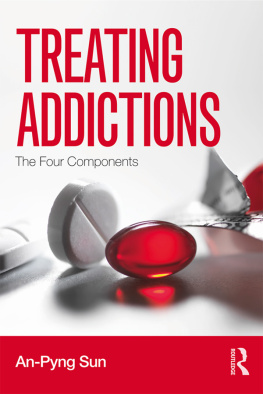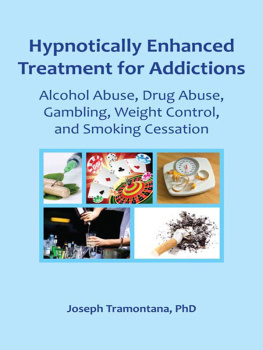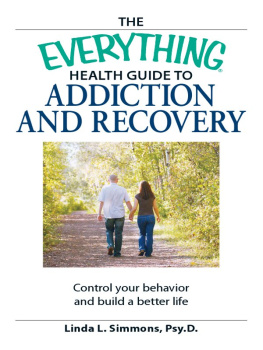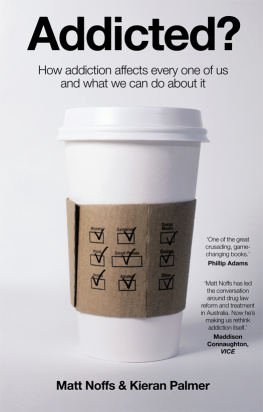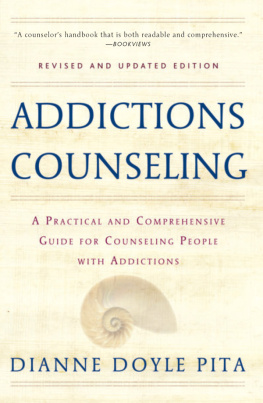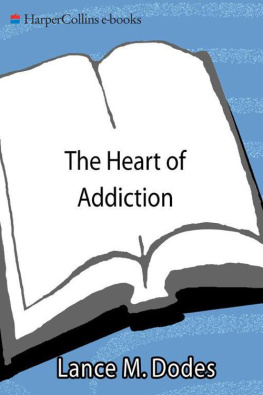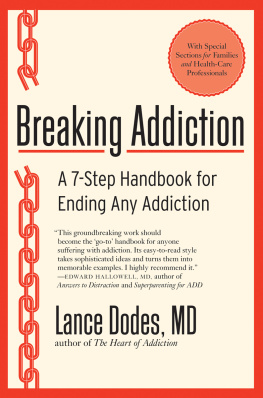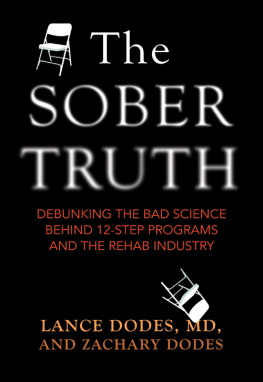THE
HEART
OF
ADDICTION
A New Approach to Understanding
and Managing Alcoholism and Other
Addictive Behaviors
LANCE M. DODES M.D.

To Connie, Joshua, and Zachary
CONTENTS
Len, a forty-three-year-old man with long-standing alcoholism, had managed to stay sober for six months. He couldnt remember when he had been able to go this long without a drink. As he stood in his home looking up at the botched handiwork of the man he had hired to fix his ceiling, he abruptly made a decision. Striding purposefully over to the refrigerator, he pulled out a beer and began to drink.
It was late afternoon when Susan drove by the convenience store on the way home from work. Still ahead of her were food shopping, a trip to the vet to pick up the dogs medicine, and straightening up for the impending weekend visit of her parents-in-law. Thinking about these chores, she began to slowly shake her head back and forth. Although she had sworn to her husband that she would not waste any more of their money on lottery tickets, she parked the car and with grim determination entered the store that she knew contained the Lotto machine.
A hard rain made it difficult for Steven to see out the windows of his car. His search was already hindered by the fact that in this weather the prostitutes would be huddling in doorways, instead of strutting openly as on most nights. But he had to find one. Almost every night, he had to find one.

Alcoholism and other addictions are among the most important problems we face in our society. Yet, if you look beyond pat ideas about their cause, such as alcoholism is a disease, nobody has really had an answer for why people with addictive behaviors continue to repeat them in the face of their awful consequences. This book will offer an answer to the core Why? question of alcoholism and other addictions, and will provide the chance for you to do what so many of my patients have done: use this new understanding and the practical tools that flow from it to take back control of your life.
You may be concerned about this subject because you are suffering with an addiction, and perhaps have wrestled with it on your own or have tried one or another treatment approach, without much success. Or, you may worry that a behavior of yours is addictive and want to know the difference, beyond simple formulas and labels, between just doing something too much and having a real addiction. You might also be concerned about a loved one who suffers with an addiction and has not been able to get wellor hasnt found a way to look at his or her problem in a way that feels safe enough to begin to deal with it. Finally, you may be interested in a new way to think about addictions because you provide professional help to people suffering with these problems, and have been dissatisfied with the help you are offering using the usual traditional approach.
In this book, I am going to tell you things that are very different. In fact, in some ways this new approach stands traditional views on their head.
For over twenty years, as a psychiatrist in both substance abuse units of hospitals and in my private office, instead of trying to sell people on a set, preexisting program, I have spent my time listening to the experiences of people suffering with addictive behaviors. Often I have been moved by their stories of struggling with an urge that seemed so much more powerful than they were. It was after listening to a great many people that I realized I was being told something new about the very nature of addiction. And with the limited success I saw with the standard approaches, it seemed to me that it was time for something new.
This new approach is not a simplistic, one-size-fits-all recipe of quick fixes that cannot possibly work for everyone. This book is self-help of a different sort. I will give you the tools to help you understand and master your addiction, illustrated with many examples of how people have individualized these new ideas for themselves. I believe that you will find in the stories of these people and situations elements that resonate with who you are as an individualand that these stories and my discussion of them will enable you to thoughtfully and usefully apply this new understanding of the nature of addiction to yourself. This is, in fact, just what they did.
A NEW WAY OF THINKING
I first noticed the pattern that I discovered underlies addictive behavior when I treated people such as Michael Franklin,being trapped. Then, on the far corner, he spotted a cocktail lounge. At that moment, his months of effort to stay sober disappeared from his mind. He walked across the street, went into the bar, and ordered a vodka martini, immediately followed by two more.
The next day when I met with him and he recounted his experience, something surprising emerged. We learned that he began to feel better not when he started to feel the physical effects of the alcohol or when the first sip of martini passed his lips. He had begun to feel better the moment he decided to walk into the bar. The drink itself was almost irrelevant!
We soon discovered that the moment Michael decided to drink, he had already accomplished something. In making the decision, he had the sense that he had reversed the helplessness he felt while standing outside waiting. He no longer felt helpless, because he knew at that moment that he could, and would, take an action that would make him feel better.
Once Michael realized this, the emotional purpose of his drinking began to make sense. He had felt driven to drink because he had to get out of his trap. Drinking reversed his helplessness by placing him in control of how he felt (alcohol and drugs in general are particularly apt for this purposealtering how one feels is just what they do). But he had actually begun to achieve this goal before he had swallowed a drop. So, although alcohol could change his mood, it was clear that it was the meaning of feeling empowered that was critical here.
I have heard of experiences just like Michaels from an enormous number of people with all kinds of addictive behaviors, and I will offer many detailed examples of this in this book. But for now, I will simply state my conclusion. Virtually every addictive act is preceded by a feeling of helplessness or powerlessness. Addictive behavior functions to repair this underlying feeling of helplessness. It is able to do this because taking the addictive action (or even deciding to take this action) creates a sense of being empowered, of regaining controlover ones emotional experience and ones life.
Of course, addictive behavior is actually out of control at the same time that it serves a deeper purpose of regaining control. This paradox is not unusual in emotional life. It arises because your other goals are temporarily ignored while you are under the sway of a powerful need to act in the moment. So, if you have an addiction, while you are trying to create a sense of control, the net effect of this behavior is all too often contrary to what you want in general for yourself. The net effect is to be out of control.
Naturally, we all have to live with a certain degree of helplessness in our lives, and everyone, including you if you suffer with an addiction, puts up with this annoyance much of the time without having to take a drink or perform another addictive act. But what I have found is that for people suffering with addictions, there are quite specific kinds of helplessness,
Next page

